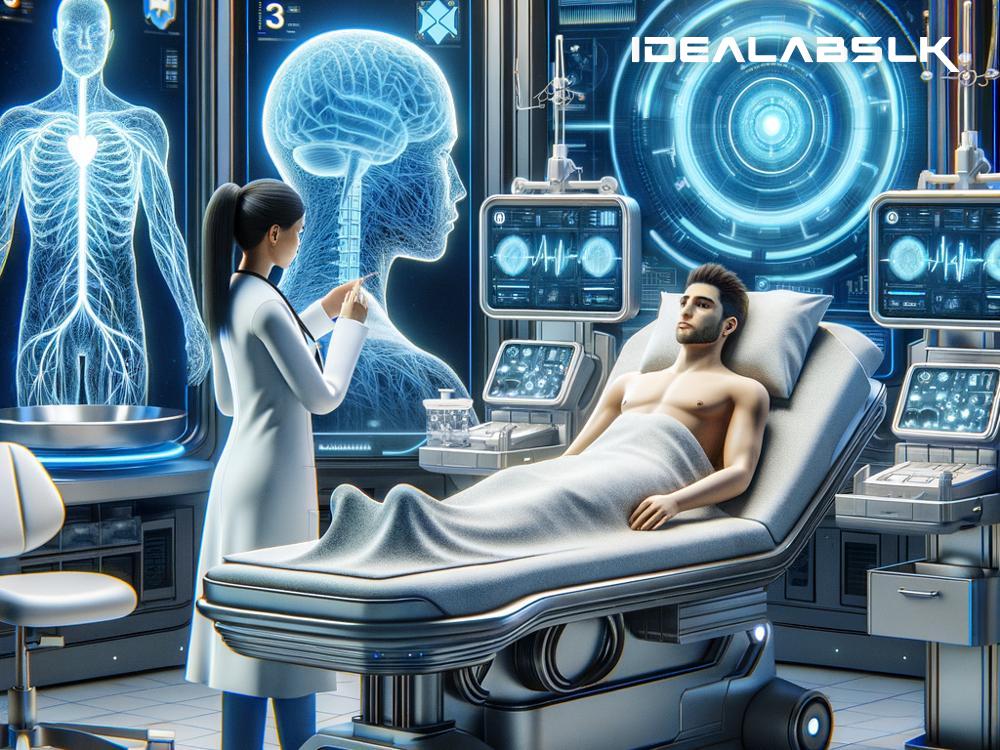The Ethics of Artificial Intelligence in Healthcare: Transforming the Industry
Healthcare is going through a digital revolution, and at the heart of this transformation is Artificial Intelligence (AI). AI in healthcare means using computers and technology to mimic human thought and reasoning to solve complex medical problems. From diagnosing diseases to personalized treatment plans, AI is making waves. But as much as AI promises to revolutionize healthcare, it brings a suitcase full of ethical dilemmas. Let's unpack this suitcase and explore the ethics of using AI in healthcare and how it's transforming the industry.
Why use AI in Healthcare?
Before we delve into the ethics, it's essential to understand why there's such a buzz around AI in healthcare. Simply put, AI can process and analyze data much faster than humans. This means doctors can diagnose diseases more quickly and accurately, patients can receive personalized treatment, and healthcare providers can predict potential outbreaks before they happen. Moreover, AI can help in managing repetitive tasks, allowing healthcare professionals to focus more on patient care.
The Ethical Dilemma
While the benefits are clear, the infusion of AI into healthcare has raised significant ethical concerns. At the heart of these concerns are issues of privacy, consent, accountability, and the looming fear of job displacement. Let's break these down.
Privacy and Consent
AI systems need vast amounts of data to learn and make decisions. This data often includes sensitive personal information. The question then arises: How do we ensure this data is used responsibly? Patients need assurances that their data is protected and that they have control over how it's used. Obtaining informed consent becomes critical, yet it's challenging to explain the complexities of AI to patients in a way they can easily understand.
Accountability
When AI systems make decisions, such as diagnosing a disease, who is responsible if something goes wrong? This "black box" problem, where even the creators of AI systems can't always explain how they arrived at a certain conclusion, complicates issues of accountability and trust in healthcare decisions.
Job Displacement
There's also the concern that AI will replace jobs in healthcare, leading to unemployment among medical professionals. While AI can certainly take over some tasks, the human touch in healthcare is irreplaceable. The challenge lies in integrating AI in a way that supports rather than replaces human workers.
Transforming Healthcare with AI: Ethical Approaches
Transforming healthcare with AI requires not only technological advancements but also thoughtful consideration of these ethical dilemmas. Here are some ways the healthcare industry is addressing these concerns.
Enhancing Privacy and Consent
Protecting patient data is paramount. This means implementing robust security measures and ensuring data is anonymized when used for training AI systems. Furthermore, efforts are being made to simplify consent processes, making it easier for patients to understand what they're agreeing to.
Ensuring Accountability
Creating ethical AI involves making systems as transparent as possible and establishing clear guidelines on who is accountable when AI is used in patient care. This includes ongoing monitoring and assessment of AI systems to ensure they are functioning as intended and do not cause harm.
Balancing Automation with Human Employment
The solution to job displacement fears isn't to halt AI development but to find ways to complement human workers with AI. This involves training healthcare professionals to work alongside AI tools, leveraging their unique human skills alongside the efficiency and accuracy of AI.
Conclusion
The introduction of AI in healthcare is a double-edged sword. While it promises to improve patient outcomes and revolutionize healthcare delivery, it also poses significant ethical challenges that need to be carefully navigated. The key lies in finding a balance—leveraging AI's capabilities to enhance healthcare while ensuring privacy, consent, accountability, and job security are adequately addressed.
As we continue to explore this new frontier, it's clear that the ethical use of AI in healthcare will be an ongoing conversation, one that requires the collaboration of technologists, healthcare professionals, ethicists, and patients. By prioritizing these ethical considerations, we can harness the power of AI to transform healthcare for the better, creating a future where technology and humanity work hand in hand to heal and care for society.

